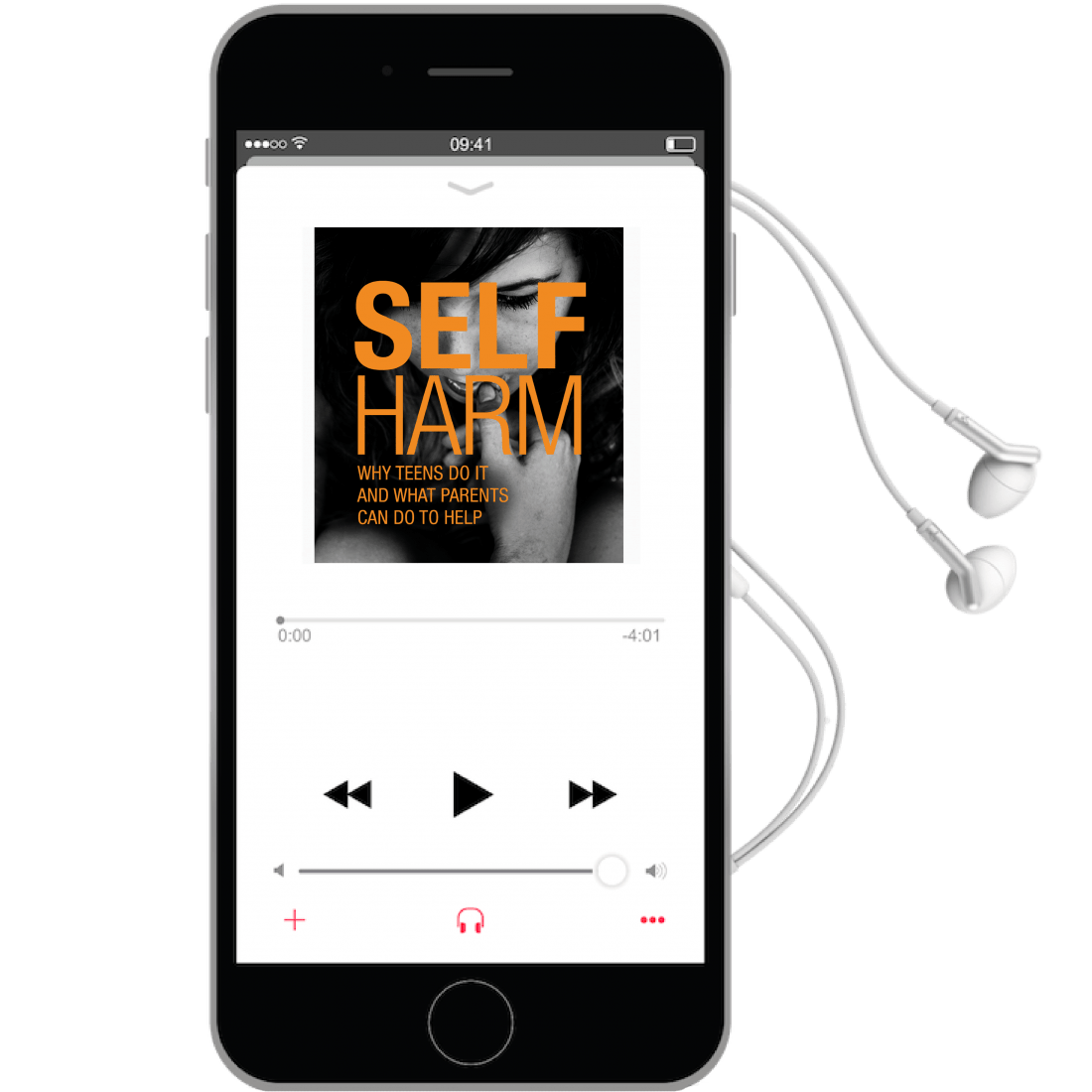michelle's blog
When You’re on the Wait List: 18 practical ways to support a struggling teen
read

Earlier this year Shannon noticed that the mental health of her 14-year-old son was deteriorating. He was no longer interested in catching up with his mates, hated schoolwork and seemed unusually disinterested in life. One afternoon he “snapped”, and through a flood of tears told his mother he wasn’t sure if life was worth living. The next day she swung into action, making an appointment with their family GP who offered them a referral to a psychiatrist and psychologist.
Finding a psychologist was hard (three-month wait) but finding a psychiatrist was even harder (five-month wait). Although the GP was beyond amazing, a three to five-month wait for a teenager who can’t see past tomorrow is really difficult to come to terms with. I know this is by no means is this an isolated case, and the demand for mental health support for young people is particularly high at the moment. In many regions wait lists are even longer than in Shannon’s family’s case.
This blog aims to give you a list of ideas to consider while you are waiting. Think of these things like a “hold the forte” safety and wellbeing plan. I hope that having something concrete to focus on may take the edge off feeling directionless. No one likes feeling powerless, and please be reassured that the little things you implement can make the world of difference. They set a solid base for a medical professional to build on. Just like a house, any additional support will be more effective if the foundation is sturdy.

THOUGHTS FOR HOME LIFE
- Lower your expectations and prioritise what is only most important without ANY guilt. It may be necessary to review everyone’s schedules to make time for this season in your lives.
- If possible, try and recruit the support of extended family and friends. They may be able to offer rest-bite in the form of sleepovers or outings. One day’s break, every two weeks, can make the world of difference for everyone! But please brief them thoroughly first, so they are able to offer the sensitivity required.
- Deliberately and regularly plan small things to look forward to – and try to engage your tween or teen in the planning process. This can really help get them through each day, week or school term.
- Play is therapy in and of itself. Create space for uninterrupted, agenda-less, non-adult directed time. Fishing, surfing, painting, reading, knitting, or tinkering on cars enables kids to re-connect with their souls. I recall Maggie Dent, a leading parenting educator with four grown boys, saying that she once got a pile of soil delivered to her backyard for her boys to “play” with, which I thought was an out-of-the-box, interesting idea to ignite play. Imagine the things that boys could do with a whole pile of soil.
- Routines are powerful, so don’t be tempted to drop them, even if they are met with more resistance. Pre-set mealtimes, bedtimes and wake up routines all take the pressure off young people having to make quality decisions themselves. They also provide an anchor of predictability in their unstable world.
- Please monitor online time, knowing they will be more likely to engage in risky behaviour.
THOUGHTS TO KEEP POSITIVE MOVEMENT
- When young people are struggling the temptation is to reduce their responsibility. However, it is critical that young people feel needed within our homes. Build a small garden they can look after, adding a pet to your family or giving them a new responsibility can emphasise, “You add value.”
- Encourage them to learn a new skill or explore an interest outside of the home. The additional benefit of this is that they may find mentors – lighthouses for their lives. Mentors may be able to say with ease what you may be unable to. Also, recognise that what makes mentors special is that young people choose them because they believe they can add value.
- Private or government-funded camps, small group life skills programs, and life coaching may offer interim support. Free online support programs like Bite Back Mental Health Challenge by the Black Dog Institute and The Brave Program are all options to consider.
- Create a coping kit with them. A coping kit may be a simple box that is full of things that distract and soothe their soul. I recently built a coping kit with a tween girl, and it was filled with colouring-in books, sensory toys, journals, fluffy socks and the names of helpful adults who love them. The best thing about coping kits is that they can be tailor-made by the child, for the child.
- Discussing emotional preferences enables young people to manage their more difficult moments. Here are some of the questions you might consider using: When you feel unsafe, do you want me to check ink on you or leave you alone? When you’ve had a hard day, what can I do to make it easier? You might even extend the questions in other areas like, When I want to brag about you, who can I tell? Just family, friends or the whole world on social media? When I need you to do something, do you want me to tell you or write it down?
- Check in with them regularly (not obsessively but regularly). Although talking about poor mental health can be tough, it’s something we can’t afford to leave to the professionals when our kids are struggling.

THOUGHTS FOR ACCESSING PROFESSIONALS
- Please don’t let long waitlists deter you from making appointments. You can always cancel them if the situation resolves itself. Remember to put your name down on a cancellation list, keep in contact with the clinic, and book future appointments well ahead of time.
- Think outside of the box when accessing therapy. Psychologists are not your only option. Don’t forget counsellors, social workers and GPs. In severe cases, GPs may be able to ask for favours within their networks of contacts.
- Being open to digital appointments is not ideal for all young people but does open up a “world” of options.
- Always head to your local hospital if you are unsure of your child’s safety or are concerned for any reason.
- Please use the free call and chat services on offer:
Lifeline – 13 11 14
Lifeline also have a chat service available 12- 2pm every day – 0477 131 114.
Kid’s Help Line – 1800 551 800.
Beyond Blue – 1300 22 46 36
Headspace, the national youth mental health service, is also available.
1300 642 255 (1300 MH CALL) is another number you can call to get advice on how to handle a crisis and what services are available to you - If you are having trouble getting your tween or teen to agree to an appointment refer to this free blog for suggestions: How to Talk to Teens About Counselling: Suggestions that could make all the difference.
The right professional, at the right time, can breathe new hope into a young person’s life. Once safe within the four walls of a professional space, the heavy load families carry can be shared, and slowly made more manageable. When a tween or teen meets “their person” it can be a special experience for them. We just want to get them to that finish line loved, and ready to embrace what is on offer.
RECOMMENDED READING: You might like to check out my book – Self-harm: What Teens Do and What Parents Can Do to Help or this webinar – Strengthening Teens Mental Health
nEW here?
If you are new to my blog, I’m guessing that someone you trust mentioned my name, or you stumbled upon me online. This site is full of helpful parenting ideas that will help you make decisions with more confidence.
If you have something specific you are looking for, why not search the topics below. If you just want to browse, why not start by reading my most popular posts.
If you would like to receive Michelle’s blog via email each month, simply sign up below, indicating if you are a parent or a professional.

top reads
- 1. Try Being 5 Minutes Late: Common Sense Ideas to Promote Resilience
- 2. How to Deal with an Entitled Teen: Strategies You Can Use Today
- 3. Choosing a Counsellor: Ideas That Could Make All the Difference
- 4. Even If: Conversations to Combat Anxiety
- 5. What to Say if Your Child is Self-Harming: A Guide to the Initial Discussion


